Cameroon
Cameroon’s President Paul Biya called for calm and pledged to restore order as he was sworn in on Thursday following a disputed election.
Days of deadly protests followed the announcement that the 92-year-old had won an eighth term in office.
“I appeal to everyone's sense of responsibility. I’m addressing all those who are working to incite hatred and violence in our country, particularly some of our compatriots in the diaspora,” he said.
“Cameroon does not need a post-election crisis with potentially dramatic consequences, as has been seen elsewhere.”
Opposition leaders and supporters say the election was rigged and blame Biya for the problems facing the country.
There has been widespread international criticism of the violent crackdown by security forces on the demonstrations.
Data from two United Nations sources estimate that 48 civilians were killed during the protests, while the government says at least five people died.
Biya took his oath of office at the parliament in what residents described as the heavily militarised and partially deserted capital, Yaounde.
In his inauguration speech, the world's oldest ruler blamed irresponsible politicians and the diaspora for inciting unrest.
He promised to stay faithful to the confidence of the Cameroonian people and vowed to work for a “united, stable and prosperous” country.
Cameroon’s top court declared him winner of the election on 27 October, with 53.66% of the vote, ahead of his former ally-turned-challenger Issa Tchiroma Bakary, who scored 35.19%.
There were protests in several parts of the country days after the 12 October vote, followed by a three-day lockdown this week after Tchiroma claimed victory and alleged vote tampering.
Biya came to power in 1982 following the resignation of Cameroon’s first president and has ruled since following a 2008 constitutional amendment that abolished term limits.
His health has been a topic of speculation as he spends most of his time in Europe, leaving governance to key party officials and family members.
The results of his nearly half-century in power have been mixed. Armed insurgencies in both the north and west of the country, along with a stagnant economy, have left many young people disillusioned.




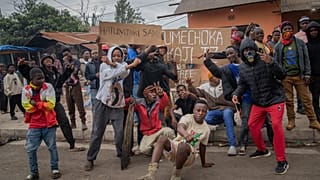
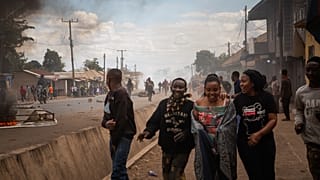
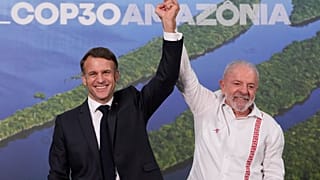
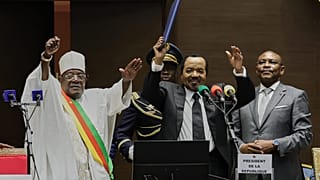
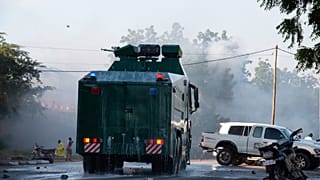
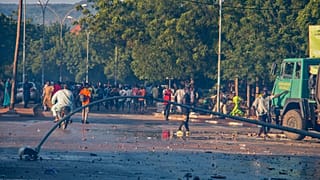
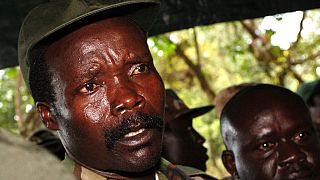
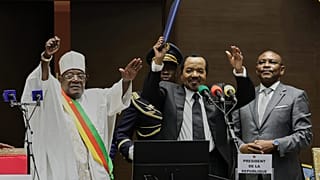
01:24
COP30: Protesters call for more urgent action to combat climate crisis
01:23
African Union monitors say Tanzanian poll did not meet international standards
01:11
Guinea's junta leader enters the December presidential race
Go to video
Kenya’s deadly landslides test the country’s climate readiness
01:09
Landslide leaves at least 26 dead in western Kenya
01:45
Tanzania opposition rejects president’s win in vote marred by protests